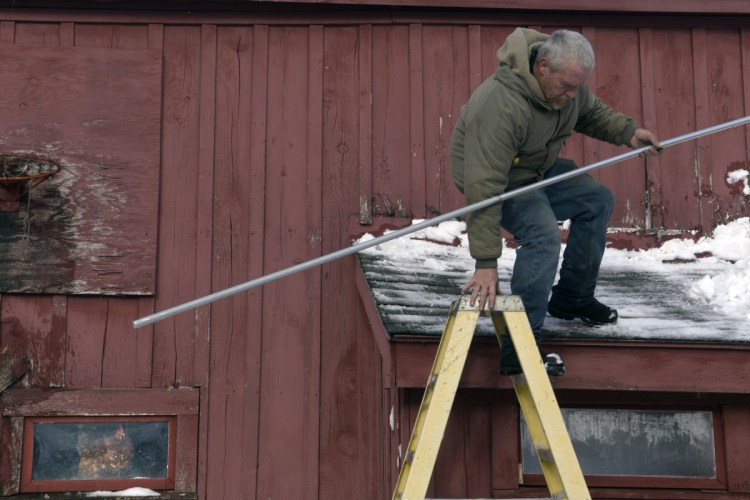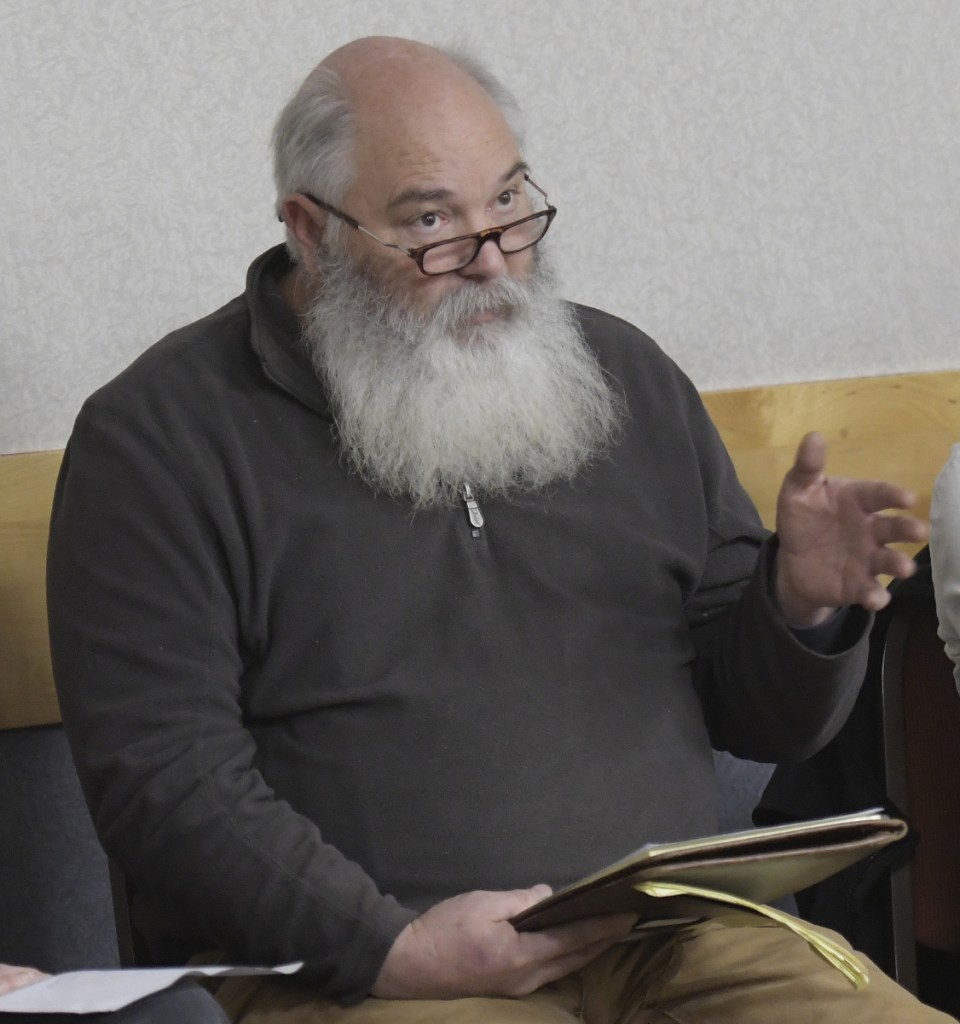AUGUSTA — A beekeeper, an apple farmer and a sheep raiser walk into the Augusta Civic Center to talk about the weather.
And that’s not the set-up to a joke.
As part of the annual Agricultural Trades Show, which began Tuesday and concludes on Thursday, a handful of farmers were brought together Tuesday for a panel discussion on how changes in weather patterns and extreme changes in weather have affected their farming operations. Organized by the University of Maine Climate and Agriculture Network, the panel featured five farmers from around the state, each of them specializing in one area, and met on the first day of the show in the Hancock Room.
The panel moderator, Ellen Mallory, of the University of Maine, said the goal of the university’s Climate and Agriculture Network was to bring together individuals and staff and faculty members who already were working on weather issues and coordinate their efforts. Part of that was to bring people together on Tuesday to hear the experts — the farmers themselves — talk about their experiences and how they’ve learned to adapt and deal with challenges.
“The focus is on what we in agriculture are experiencing, how we’re making changes to adapt, and what resources we may need,” she said. They were not there to discuss the politics surrounding theories of climate change or why climate change might be happening, she said, but rather to stick to the weather.
Collectively the farmers had more than 165 years of experience in farming and a diverse mix of messages about weather changes to deliver to about 30 people. While many discussed how major singular events — such as an ice storm or prolonged rain — affected their farms, bee farmer Bill Truesdell, who called himself a bit of a contrarian, said he hasn’t seen any difference.
“I got interested in the weather many years ago,” said Truesdell, who got into bee farming to pollinate crops and not to produce honey. “I kept weather records for fruit trees and bees.”
After conferring with another beekeeper, he said he came to the conclusion that the weather patterns were not anything new. He said the weather just cycles in patterns of warming and cooling, which can be seen in the patterns of first frosts and the thaws that follow.
“All these times vary, and we manage accordingly,” he said.
He downplayed the idea that rising temperature was leading to widespread die-offs of bees. He has more bees today than ever before, he said, and noted that bee deaths can be traced to mites or starvation from improper feeding.
“We’re exactly where we were back in the ’90s,” he said.
However, Truesdell said he thought global warming is real, and that it’s “been real since the 1850s.”
Others on the panel credit adverse effects they’ve seen to changing weather patterns. Marilyn Meyerhans, who owns and operates the Apple Farm in Fairfield, said she definitely has seen changes in her 44 years of farming, but said “nothing changes in the weather so much as the weather.” In 2012, there was a spell in March where it reached 70 degrees, she said. The bud break for apples began three weeks early, and when the temperature plummeted back down into the 20s, “we lost everything.”
“That happens,” she said.
The weather also can spell trouble by paving the way for viruses to infect trees. Meyerhans said that in recent years she has noticed an increase in fire blight, which is a destructive disease caused by bacteria. She said that issue arose after Macintosh trees were ordered from out of state. No matter how many times the problem has been addressed by burning the crops, the blight keeps coming back. On 100 acres of orchard, she said the blight was “everywhere.”
“It will devastate apple trees,” Meyerhans said. “It will kill them.”
Ralph Turner, who has been growing vegetables for decades and selling them commercially in Freeport since 1997, said his land is composed of soil that retains a lot of moisture, which came to a head in 2009, when in June and July the region got walloped with 23 inches of rain. It had been a dry spring, so the early promise of a fruitful summer was quickly washed away.
“We needed a comprehensive solution,” he said.
Turner and his wife started keeping track of weather pattern data that showed that in the past seven years, multiple storms have dumped high amounts of rain on the state.
“We’re getting more rain,” he said.
Turner changed the way he farmed, particularly how often he dug and the incline at which he planted, to allow for better water runoff.
Nanne Kennedy, a grass farmer who also raises sheep in the town of Washington, said an ice storm three years ago caused part of a roof to fall on her property, trapping some animals inside for a while. Her soil also was hit hard by that storm and others, as her sandy soil easily dries out, especially if there’s not an adequate cover of snow to provide water when it melts.
“I haven’t had significant regrowth in the past two years,” she said.
That has lead her to try to adapt the way she does things, such as changing the breeding schedules of her sheep, which she said she is still working on perfecting.
Colin Ellis — 861-9253
cellis@centralmaine.com
Twitter: @colinoellis
Send questions/comments to the editors.





Comments are no longer available on this story